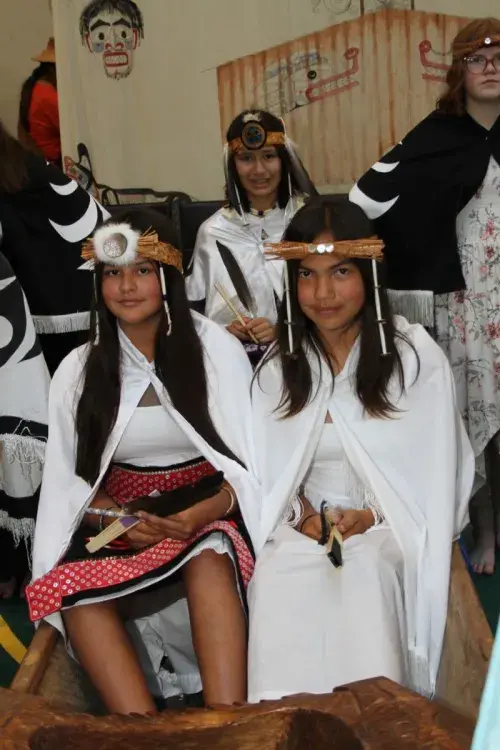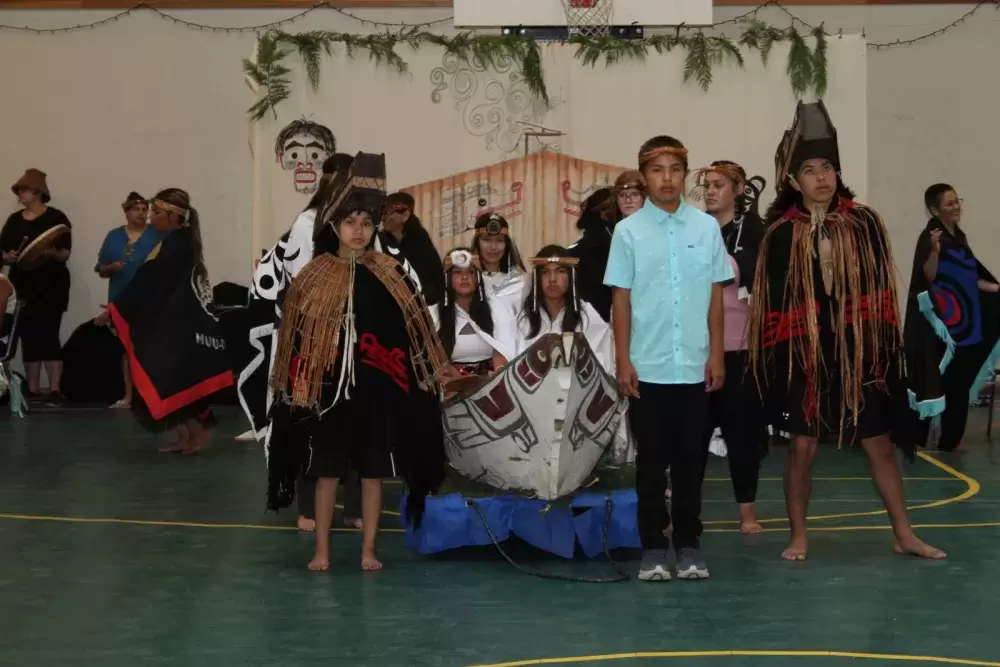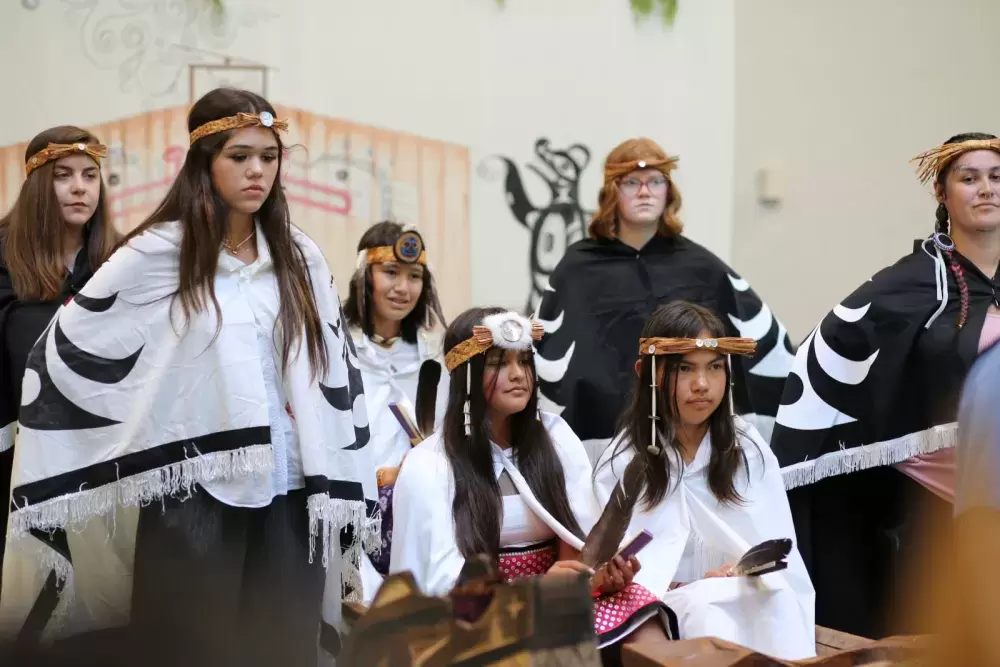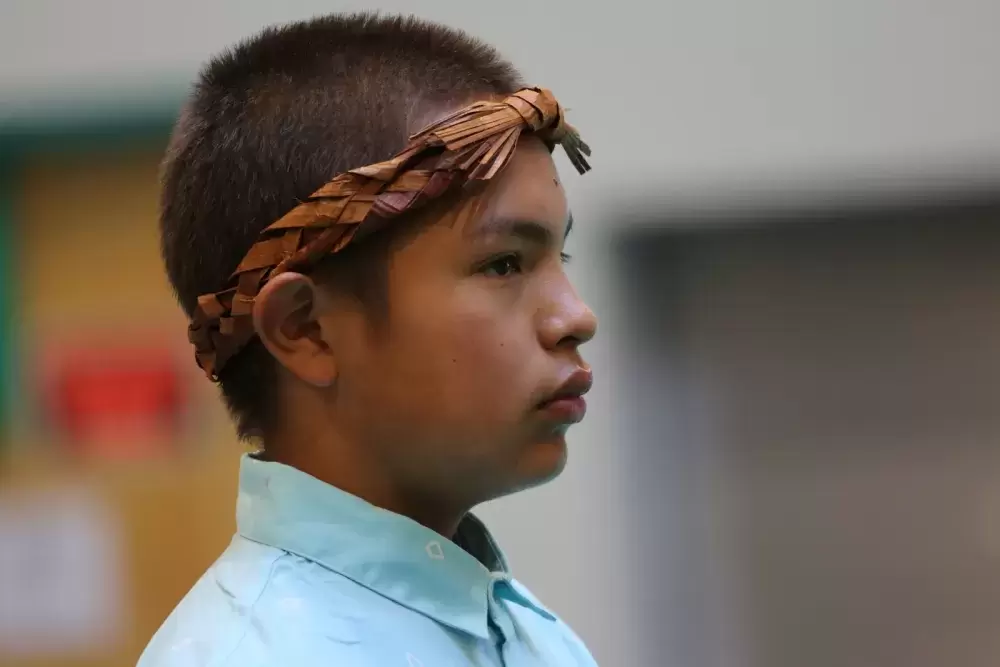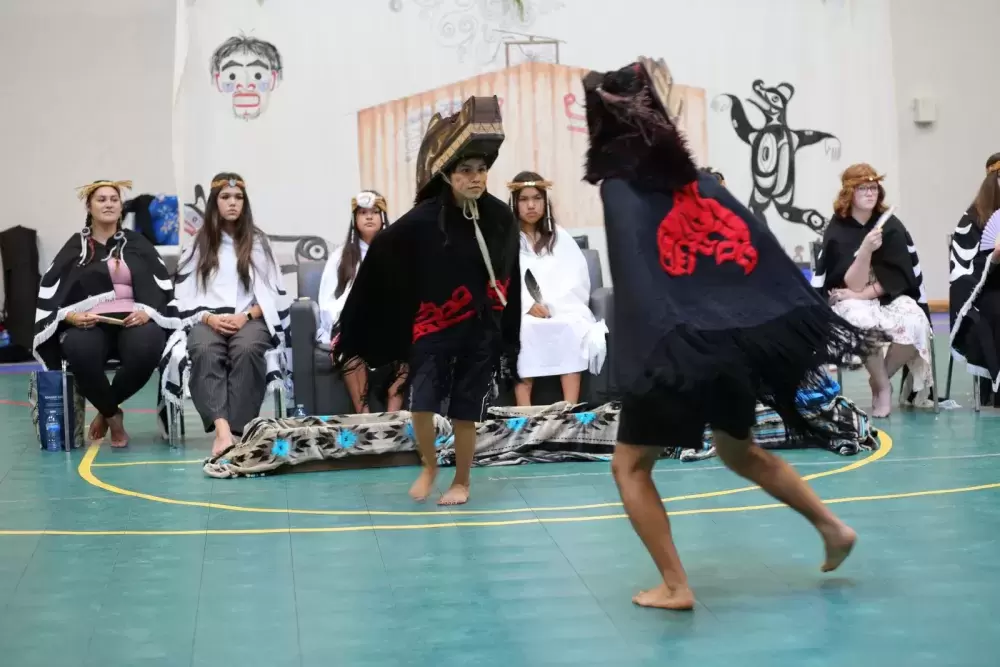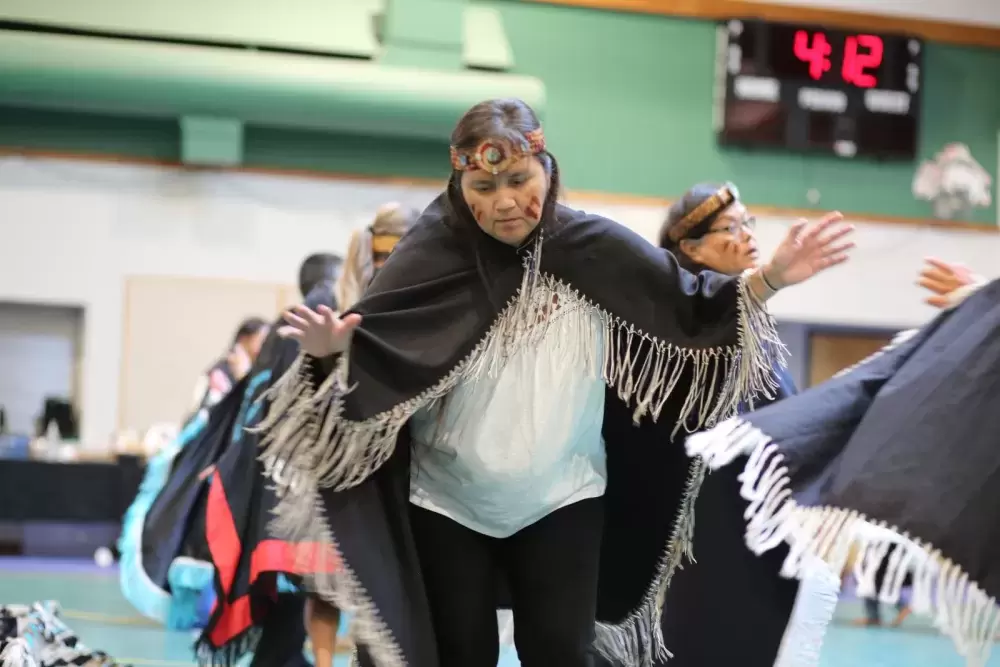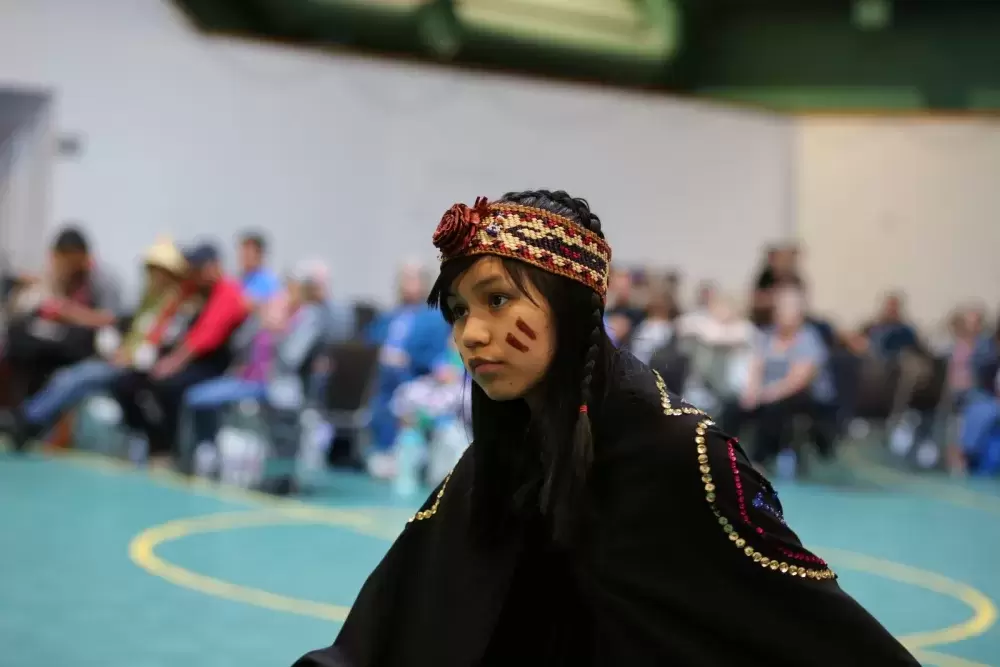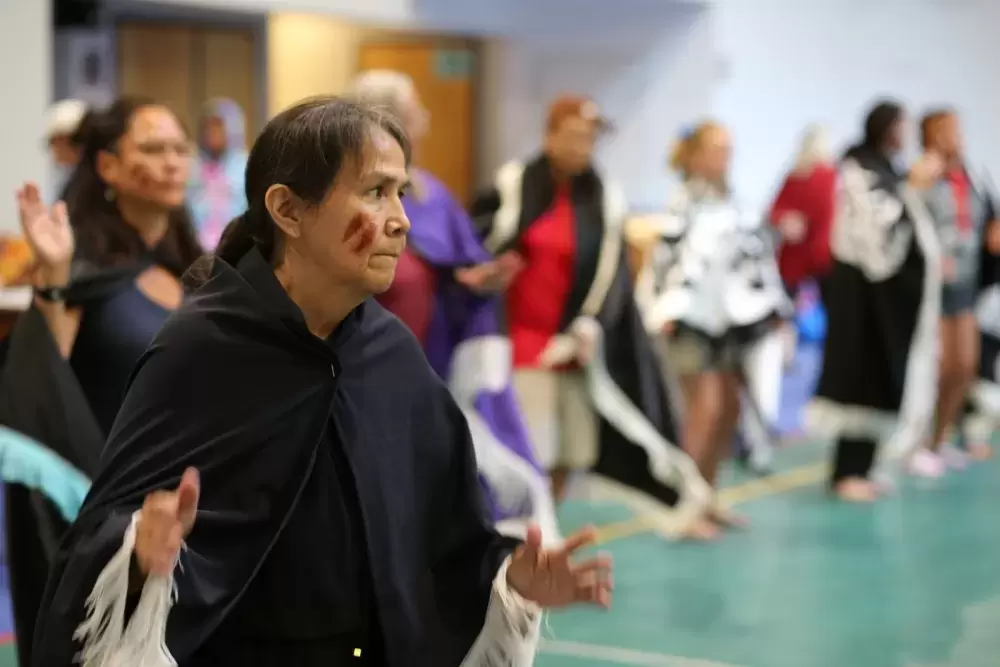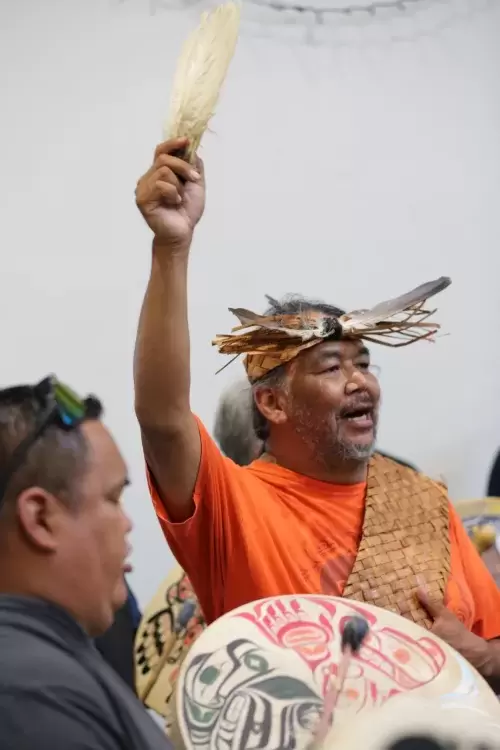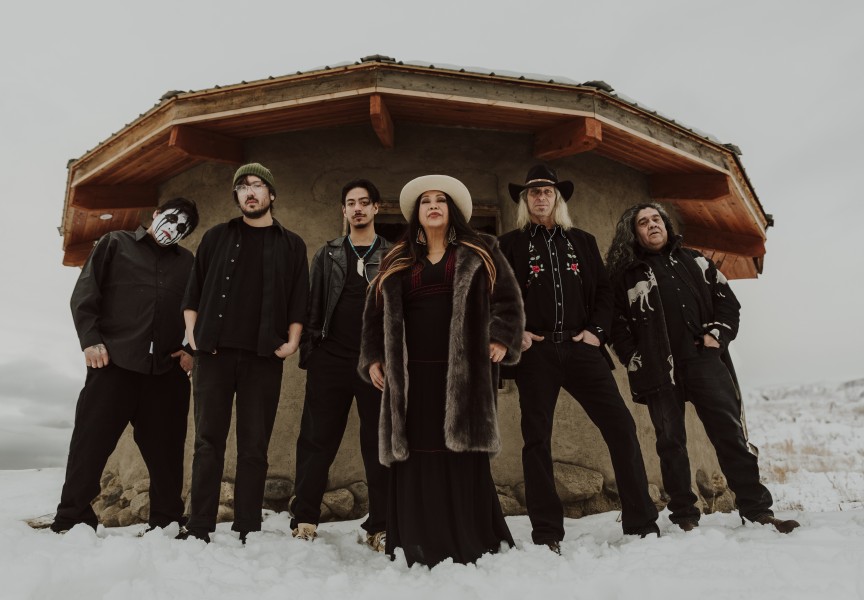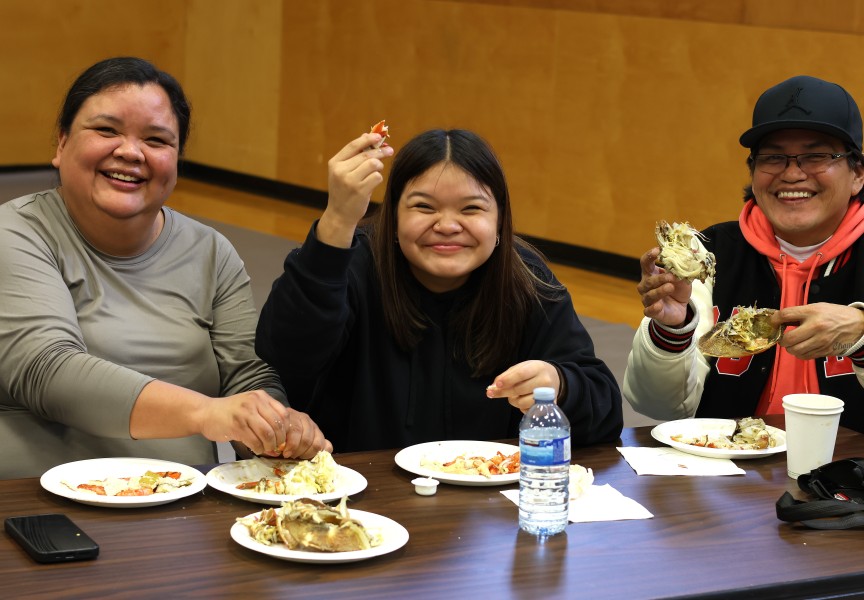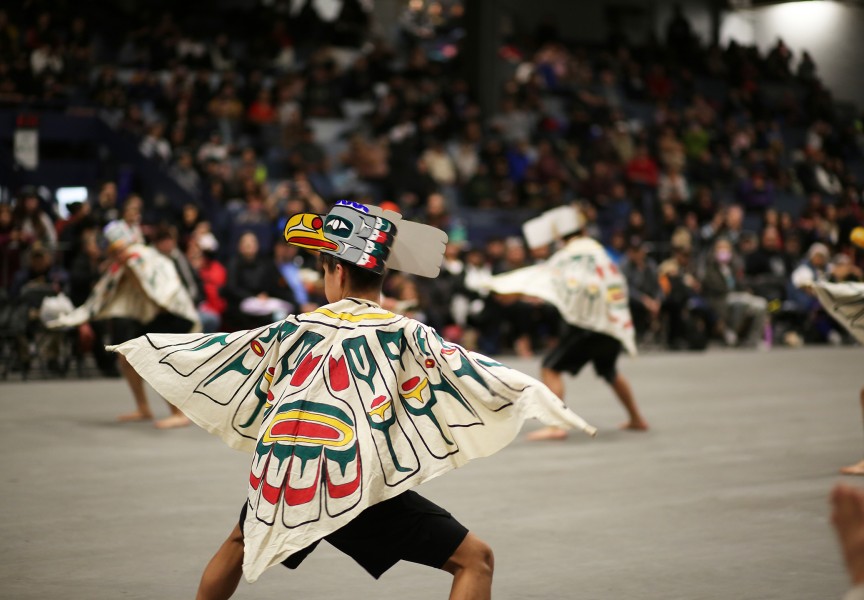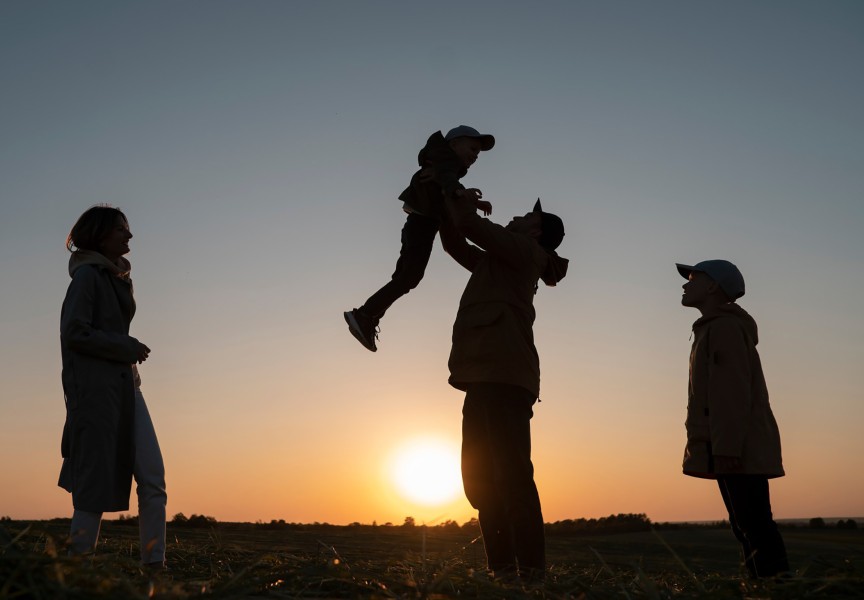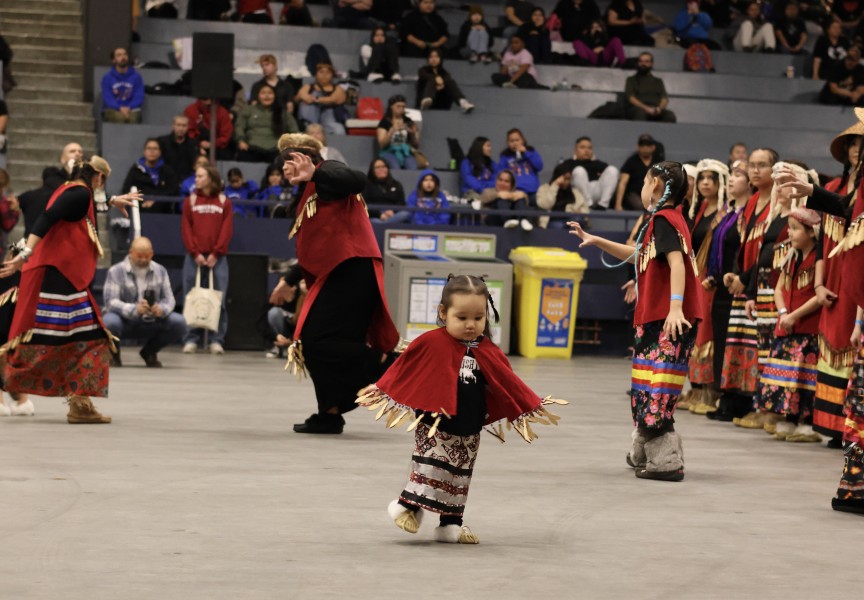For one day this month three young Huu-ay-aht women held the highest position in their nation, the latest effort in a cultural revival movement to restore the respected roles females traditionally held in Indigenous communities.
With broad smiles 12-year-old Eden Dennis, Taylor Williams, also 12, and 10-year-old Mariah Chief were brought into the House of Huu-ay-aht in a canoe by fellow members of their First Nation, as others danced in regalia around them. The procession began their ʕic̓tuuła (pronounced eights too ltha), a coming-of-age ceremony that was once held for all female members of the First Nation after they had their first moon cycle. With over 100 in attendance, the event was held in Anacla on Saturday, July 15.
“I started this because my youngest daughter is in that transformation phase right now, and I opened it up to some of my nieces if they wanted to take part,” said Eden Dennis’ father Wishkey, who is now known as Qiic Qiica (pronouned Keets Keetsa) after receiving a new name at the ceremony. “Historically it was an opportunity to teach them the roles of womanhood - the matriarchs, the moms and the grandmas - to provide lessons on womanhood. It’s all centred around that and to hold them up, to honor them because they are the life givers of mother earth.”
Dennis, Williams and Chief were also given new Nuu-chah-nulth names at the ceremony, as were their mothers. Following the ʕic̓tuuła tradition, on this day the young ladies were placed a position above hereditary chiefs. In recognition of this, three Ha’wiih from the Ditidaht, Hu-ay-aht and Ka:'yu:'k't'h'/Che:k'tles7et'h' First Nations knelt down to wash the young women’s feet, using water from a carved cedar bowl.
“It’s an opportunity for us as men and fathers to proclaim for the world that, ‘My daughter means something, my daughter means a lot and I want to protect her, I want her to be honored and valued and respected’,” said Qiic Qiica.
“We do our best to ensure that no harm comes to them,” added Robert Dennis Sr., Eden’s grandfather. “It’s our duty as a community; not just one person, we as a community have the shared responsibility.”
Mary Fontaine is a Presbyterian minister and the founder of Hummingbird Ministries, which promotes healing amongst Indigenous people by helping to repair a broken relationship with churches and Canada. She believes that the loss of coming-of-age ceremonies has contributed to a degradation in how Indigenous women are valued in Canada, a societal casualty of the forced assimilation that came with colonization.
Fontaine recalled the words of a Jesuit priest from the early days of what would become Canada.
“He was working with the Innu people of Labrador. He said, ‘We will have to teach these savages how to treat their women’,” she recalled. “The Europeans came here with the culture of women are less than men, but that wasn’t the traditional view of Indigenous people.”
In the 21st century the prevalence of Aboriginal women and girls who are murdered or go missing has persisted to being considered a nationwide epidemic, prompting the National Inquiry which concluded in 2019. After three years and $53.8 million in federal funds, the National Inquiry found stories of tragedy across the country from every First Nation, with testimonies from 1,484 loved ones and 83 experts. National statistics from 2021 show that Indigenous women are victim to homicide at a rate over five times that of non-Aboriginal females.
Fontaine reflected that violence was not common amongst many First Nations before colonization took its toll.
“When I think about the violence in our families, I think of that, because there was no violence like that. Women were respected. Women were raised and honored as life givers,” she said, adding that this went for child rearing as well. “You weren’t allowed to raise your voice at children because it spoils their spirit. Being put in residential school, not only did they raise their voice, they raised their hand at the children.”
Coming-of-age ceremonies followed the potlatch ban in 1884, with an amendment to Canada’s Indian Act in 1895 that outlawed “any Indian festival, dance or other ceremony.” In 1914 dancing was outlawed off reserve, then in 1925 Indigenous dancing was banned entirely.
Although these prohibitions have long since been lifted, their legacy remains throughout Nuu-chah-nulth communities, which rarely hold ʕic̓tuuła for young women. Fortunately, Qiic Qiica’s grandmother had a ceremony secretly done for her in 1917, and the protocol passed through the generations.
“They were essentially doing it underground, in hiding,” he said. “Fortunately for us she told us over and over again what kind of things they did, so we are able to recreate that.”
Cory Howard from Mowachaht/Muchalaht was also able to assist, as he recently had a ʕic̓tuuła for his daughter.
“All of us need to respect women, whenever we need to talk to them,” he said. “When we see them going down the wrong road, maybe we steer them back into the right path.”
A song that Howard composed was performed at the recent ʕic̓tuuła in Anacla, a piece he created while thinking of his mother.
“When she was a little girl, her grandmother used to call, ‘Morning Sunshine’ when she got up in the morning,” said Howard of the inspiration for the song. “My mother wanted to start bringing back coming of ages.”
Now those behind the recent ʕic̓tuuła hope that Huu-ay-aht can hold a ceremony for coming-of-age women every year, building upon the revival of traditions that have been lost to so many over the last century.
“It was never lost completely, it was just dormant, sleeping for a little while. Today is the day that we wake up our ancestral calling,” said Qiic Qiica. “We’re never going to go back to the way that we lived before contact, but we’re never going to be just Canadian citizens. It’s like we have one foot in our ancient spirit and one foot in our modern mind.”

